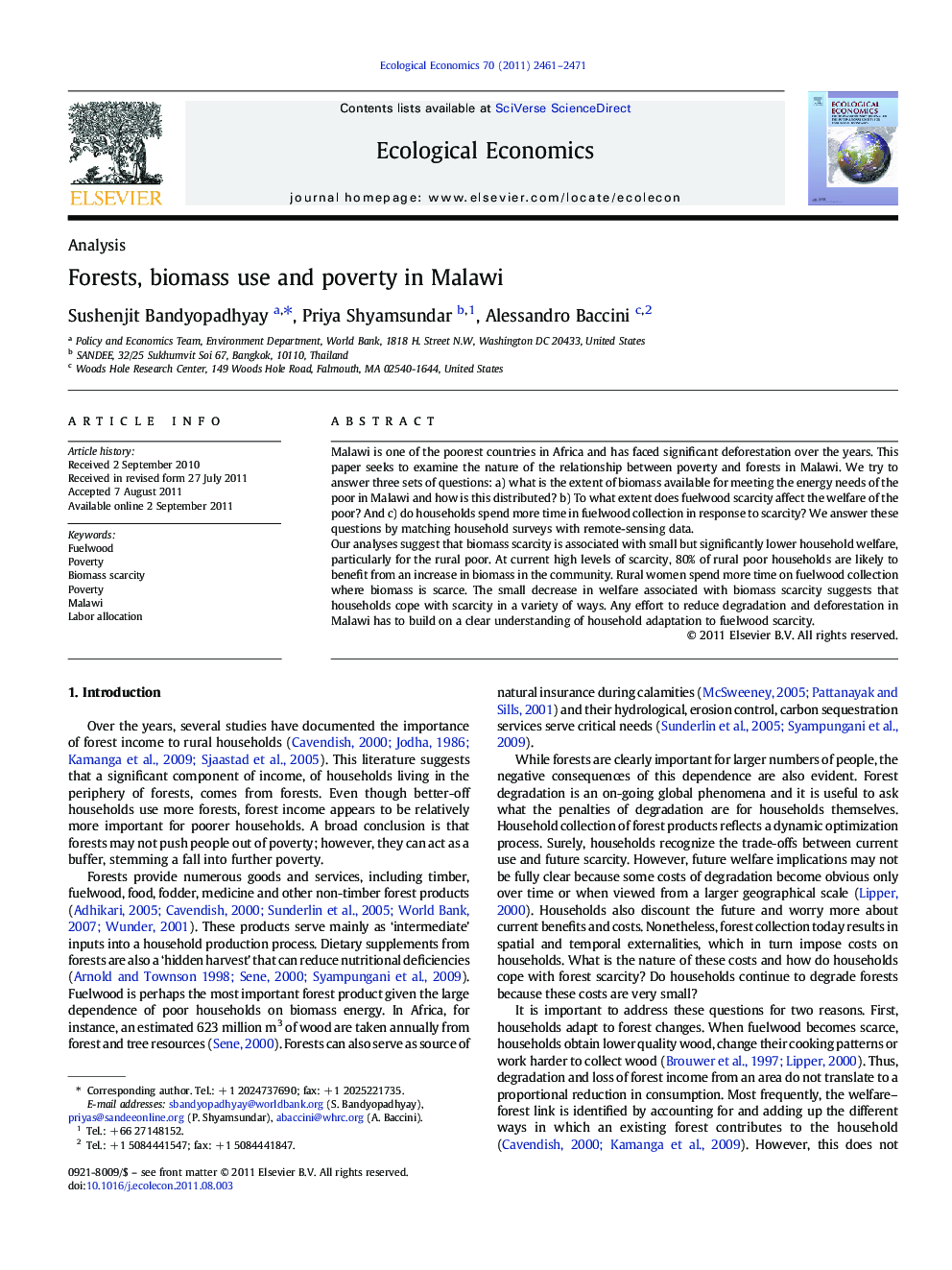| Article ID | Journal | Published Year | Pages | File Type |
|---|---|---|---|---|
| 5050512 | Ecological Economics | 2011 | 11 Pages |
Malawi is one of the poorest countries in Africa and has faced significant deforestation over the years. This paper seeks to examine the nature of the relationship between poverty and forests in Malawi. We try to answer three sets of questions: a) what is the extent of biomass available for meeting the energy needs of the poor in Malawi and how is this distributed? b) To what extent does fuelwood scarcity affect the welfare of the poor? And c) do households spend more time in fuelwood collection in response to scarcity? We answer these questions by matching household surveys with remote-sensing data.Our analyses suggest that biomass scarcity is associated with small but significantly lower household welfare, particularly for the rural poor. At current high levels of scarcity, 80% of rural poor households are likely to benefit from an increase in biomass in the community. Rural women spend more time on fuelwood collection where biomass is scarce. The small decrease in welfare associated with biomass scarcity suggests that households cope with scarcity in a variety of ways. Any effort to reduce degradation and deforestation in Malawi has to build on a clear understanding of household adaptation to fuelwood scarcity.
⺠Examines the nature of the relationship between poverty and forests in Malawi. ⺠Distribution of biomass and availability to the poor. ⺠Fuelwood scarcity and household welfare links. ⺠80% of rural poor may benefit from an increase in biomass in the community. ⺠Households cope with fuelwood scarcity in a variety of ways.
